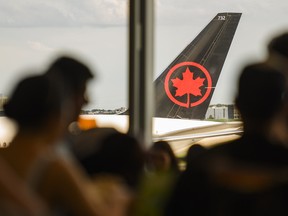Air Canada Flight Attendants on the Brink of Strike: Unpaid Work, Stagnant Wages, and Industry Trends
The collective bargaining process between Air Canada and its flight attendants has reached a critical juncture. With negotiations underway since December 11th, the Canadian Union of Public Employees (CUPE) is pushing for significant changes to address long-standing grievances. At stake are fair compensation, benefits, and scheduling rules that have been eroded over the past decade.
The Issue of Unpaid Work
A key concern for CUPE is the unpaid work performed by flight attendants on the ground before and after flights. While airlines in other countries, such as Delta, have introduced compensation for pre-flight duties like boarding, Canadian carriers have not followed suit. This has led to a growing sense of injustice among Air Canada’s 3,000 flight attendants.
"We’re talking about critical work that requires specialized training and expertise," said CUPE representative Paul LaFleur. "It’s unacceptable that we’re not being compensated for it."
CUPE is backing Bill C-415, a proposed federal law aimed at standardizing pay practices for flight attendants across Canada. Introduced by NDP MP Bonita Zarrillo in October 2024, the bill seeks to ensure that flight attendants are paid for all mandated duties, including those carried out before and after flights.
"This legislation would bring fairness to the industry," LaFleur emphasized. "It’s essential that we secure compensation for our members’ hard work."
Stagnant Wages and Eroding Purchasing Power
CUPE has also highlighted concerns about stagnant wages over the past decade, which have eroded purchasing power for flight attendants. Starting salaries at Air Canada are reported to be $27,000 annually, a figure that LaFleur deems insufficient for workers in a professional career.
"The starting hourly wage of approximately $30 per hour, and the fact that flight attendants are only paid for time in-flight, leaves many earning less than minimum wage once unpaid duties are factored in," LaFleur noted. "It’s not uncommon for a flight attendant to work a 14-hour day but receive pay for just six to eight hours."
The union is calling for enhancements in wages, benefits, and scheduling rules during the upcoming negotiations.
Industry Trends and Legislative Support
The issue of unpaid work is not unique to Air Canada but is a broader concern across the airline industry. In the United States, airlines have introduced compensation for pre-flight duties like boarding, yet Canadian carriers have not followed suit.
"Canadian flight attendants are excluded from a minimum standard that applies to every other worker," LaFleur questioned. "We need legislation that ensures we’re treated fairly and compensated for all our duties."
The proposed Bill C-415 is seen as a significant step toward addressing the nationwide issue of unpaid work in the airline industry.
Looking Ahead: Negotiations and Potential Labour Action
Since negotiations with Air Canada began on December 11th, CUPE has been focused on achieving a deal without resorting to a strike. LaFleur emphasized that their goal is to reach an agreement that satisfies their members and avoids disruption to passengers.
"Enough is enough," LaFleur concluded. "Our members deserve to be paid fairly for the critical work they do."
The outcome of these negotiations will have far-reaching implications not only for Air Canada’s flight attendants but also for the broader airline industry in Canada.
Recommendations
- The Canadian government should pass Bill C-415 to standardize pay practices for flight attendants across Canada.
- Airlines, including Air Canada, should compensate their employees for all mandated duties, including those carried out before and after flights.
- The union’s efforts to secure compensation for all hours worked may set a precedent for other airlines.
CUPE has been working closely with the NDP on Bill C-415, which would ensure flight attendants are paid for all their duties. This legislation is seen as a significant step toward addressing the nationwide issue of unpaid work in the airline industry.




